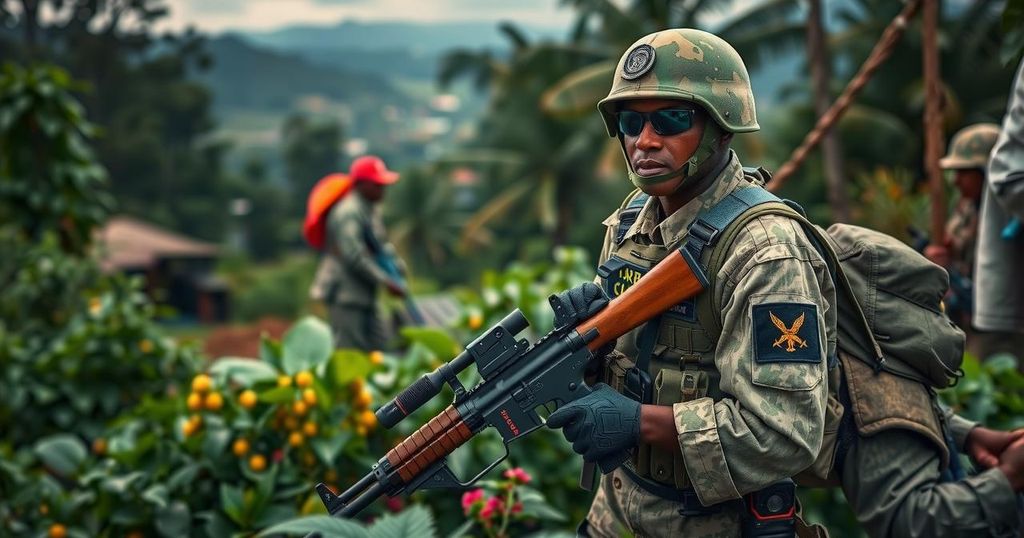The Democratic Republic of the Congo seeks the withdrawal of UN peacekeepers that were meant to leave by December 2024 due to rising violence attributed to Rwandan-backed rebels. While the government desires greater sovereignty, local populations express frustration with the peacekeepers’ effectiveness. The ongoing conflict is intensified by competition for valuable mineral resources, complicating the peace process and raising concerns over security as the U.N. force continues to delay its exit.
The Democratic Republic of the Congo (DRC) is currently grappling with the contentious presence of United Nations peacekeepers, who were initially scheduled to withdraw by December 2024. The ongoing escalation of violence in eastern DRC, particularly due to Rwandan-backed rebel groups such as the M23, has prompted an extension of their stay. The United Nations peacekeeping force, known as MONUSCO, has been stationed in the country for over two decades but faces significant pressure from both the Congolese government and local populations to withdraw, despite fears that their exit would exacerbate instability in a region plagued by numerous armed factions. A visit to Goma and its surrounding areas highlights the dire security situation, with militia groups like the Wazalendo attempting to protect civilians from M23 insurgents. Civilians, including internally displaced persons (IDPs), express frustration with MONUSCO’s perceived ineffectiveness in providing security, leading to protests against the peacekeepers. Despite calls from the Congolese government for the force to gradually reduce its presence, the persistence of violence and recent military engagements have made it clear that such a withdrawal without a robust security strategy could leave millions vulnerable. Furthermore, the conflict’s intensity is fueled by global interest in the region’s abundant mineral resources, including cobalt and tantalum, which are vital for various technology sectors. M23’s control over key mining areas, coupled with the smuggling of these resources across Rwandan borders, complicates any resolution to the ongoing violence. Although a ceasefire has been brokered, clashes continue, revealing the fractured nature of security efforts involving local militiamen and foreign troops. Experts warn that a premature departure of UN peacekeepers could create a security vacuum, endangering the already precarious situation of over seven million displaced individuals in the Congo.
The situation in the Democratic Republic of the Congo (DRC) has been colored by decades of conflict, largely driven by the country’s vast mineral wealth and the involvement of external actors, notably Rwanda. While MONUSCO was established to promote peace and stability, its role has come under scrutiny as violence has persisted, particularly in the eastern provinces. The DRC government has expressed a desire for national sovereignty and control over its security forces, yet the reality is that armed groups, both local and foreign, continue to dominate many areas. This dynamic, combined with the complex interests surrounding the region’s minerals, heightens the challenges involved in achieving lasting peace and security.
In summary, the Democratic Republic of the Congo faces a pivotal moment regarding the United Nations peacekeeping mission amidst ongoing violence and complex regional dynamics. While there is a strong desire from both the government and the local population for a withdrawal of UN forces, the potential consequences of such a move could lead to further instability and suffering for millions of displaced citizens. The intertwining issues of governance, security, and international economic interests underscore the necessity for a well-coordinated strategy to navigate the intricacies of ending this prolonged conflict while safeguarding the welfare of Congolese citizens.
Original Source: apnews.com






